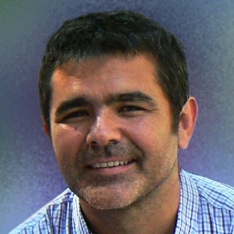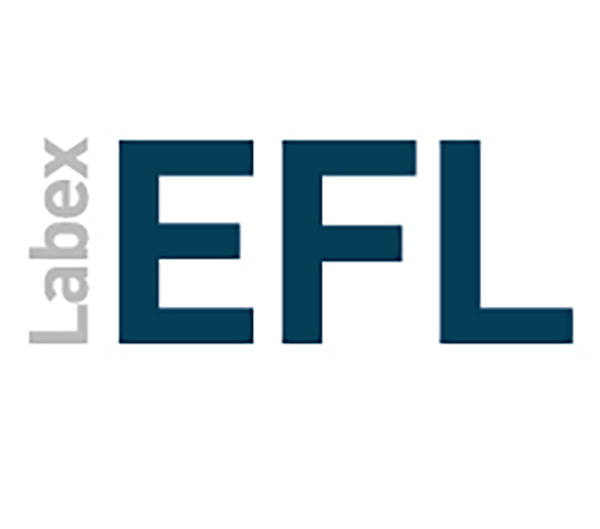Keynote Speaker
Title
Message Passing Attention Networks for Document Understanding (slides)Abstract
Graph neural networks have recently emerged as a very effective framework for processing graph-structured data. These models have achieved state-of-the-art performance in many tasks. Most graph neural networks can be described in terms of message passing, vertex update, and readout functions. We investigate the potential of GNNs in the area of NLP. We represent documents as word co-occurrence networks and propose an application of the message passing framework to NLP, the Message Passing Attention network for Document understanding (MPAD). We also propose several hierarchical variants of MPAD. Experiments conducted on standard text classification datasets show that our architectures are competitive with the state-of-the-art approaches. Ablation studies reveal further insights about the impact of the different components on performance.
Short Biography
Dr. Vazirgiannis is a Professor at LIX, Ecole Polytechnique in France. He has conducted research in Frauenhofer and Max Planck-MPI (Germany), in INRIA/FUTURS (Paris). He has been a teaching in AUEB (Greece), Ecole Polytechnique, Telecom-Paristech, ENS (France), Tsinghua, Jiaotong Shanghai (China) and in Deusto University (Spain). His current research interests are on deep and machine learning for Graph analysis (including community detection, graph classification, clustering and embeddings, influence maximization), Text mining including Graph of Words, deep learning for word embeddings with applications to web advertising and marketing, event detection and summarization. He has active cooperation with industrial partners in the area of data analytics and machine learning for large scale data repositories in different application domains. He has supervised twenty completed PhD theses. He has published three books and more than a 200 papers in international refereed journals and conferences and received best paper awards in ACM CIKM2013 and IJCAI2018. He has organized large scale conferences in the area of Data Mining and Machine Learning (such as ECML/PKDD) while he participates in the senior PC of AI and ML conferences – such as AAAI and IJCAI. He has received the ERCIM and the Marie Curie EU fellowships, the Rhino-Bird International Academic Expert Award by Tencent and between 2015 and 2018 he lead the AXA Data Science chair.
Workshop Program and Proceedings
Accepted Papers.
- Towards Exploiting Implicit Human Feedback for Improving RDF2vec Embeddings. Ahmad Al Taweel and Heiko Paulheim (slides)
- DeepLENS: Deep Learning for Entity Summarization. Qingxia Liu, Gong Cheng and Yuzhong Qu ( slides)
- Conditional Constraints for Knowledge Graph Embeddings. Michael Weyns, Pieter Bonte, Bram Steenwinckel, Filip De Turck and Femke Ongenae ( slides)
- Entity Type Prediction in Knowledge Graphs using Embeddings. Russa Biswas, Radina Sofronova, Mehwish Alam and Harald Sack (slides )
- Probing a Semantic Dependency Parser for Translational Relation Embeddings. Riley Capshaw, Marco Kuhlmann and Eva Blomqvist (slides)
- Semantic Entity Enrichment by leveraging Multi-lingual Descriptions for Link Prediction. Genet Asefa Gesese, Mehwish Alam and Harald Sack (slides)
- Affinity Dependent Negative Sampling for Knowledge Graph Embeddings. Mirza Mohtashim Alam, Hajira Jabeen, Mehdi Ali, Karishma Mohiuddin and Jens Lehmann (slides)
Workshop Program. (All times are in CEST.)
10:00 - 10:10 Welcome10:10 - 11:00 Invited Talk by Michalis Vazirgiannis
11:00 - 11:30 Coffee Break
Session 1: 11:30 - 13:00
- 11:30 - 12:00 Mirza Mohtashim Alam, Hajira Jabeen, Mehdi Ali, Karishma Mohiuddin and Jens Lehmann. Affinity Dependent Negative Sampling for Knowledge Graph Embeddings
- 12:00 - 12:25 Riley Capshaw, Marco Kuhlmann and Eva Blomqvist. Probing a Semantic Dependency Parser for Translational Relation Embeddings
- 12:25 - 12:55 Ahmad Al Taweel and Heiko Paulheim. Towards Exploiting Implicit Human Feedback for Improving RDF2vec Embeddings
13:00 - 14:00 LUNCH BREAK
Session 2: 14:00 - 15:30
- 14:00 - 14:25 Genet Asefa Gesese, Mehwish Alam and Harald Sack. Semantic Entity Enrichment by leveraging Multi-lingual Descriptions for Link Prediction
- 14:25 - 14:50 Qingxia Liu, Gong Cheng and Yuzhong Qu. DeepLENS: Deep Learning for Entity Summarization
- 14:50 - 15:15 Russa Biswas, Radina Sofronova, Mehwish Alam and Harald Sack. Entity Type Prediction in Knowledge Graphs using Embeddings
15:30 - 16:00 COFFEE BREAK
Session 3: 16:00 - 17:00
- 16:00 16:30 Michael Weyns, Pieter Bonte, Bram Steenwinckel, Filip De Turck and Femke Ongenae. Conditional Constraints for Knowledge Graph Embeddings
- 16:30 16:45 Discussion and Feedback
- 16:45 17:00 Closing
Submission Details
Papers are submitted in PDF format via the workshop’s EasyChair submission pages
Submissions can fall in one of the following categories:
- Full research papers (8-10 pages)
- Short research papers (4-6 pages)
- Position papers (2 pages)
- Lightning talks (1 page abstract)
At least one of the authors of the accepted papers must register for the workshop (pre-conference only option) to be included into the workshop proceedings.
Important Dates
- Submission deadline:
Friday February 28th, 2020Friday March 6th, 2020Friday March 13th, 2020 - Notification of Acceptance:
Friday March 27th, 2020Friday April 10th, 2020 - Camera-ready paper due:
Friday April 10th, 2020Monday April 20th, 2020 - ESWC 2020 Workshop day: Tuesday June 2nd, 2020
Organizing Committee

Mehwish Alam
FIZ Karlsruhe - Leibniz Institute for Information Infrastructure, Germany

Davide Buscaldi
Labortoire d'Informatique Paris Nord (LIPN), Paris, France
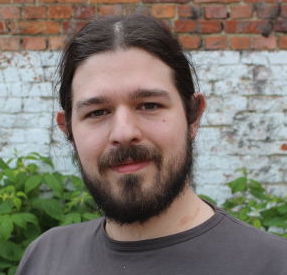
Michael Cochez
Vrije University of Amsterdam, the Netherlands
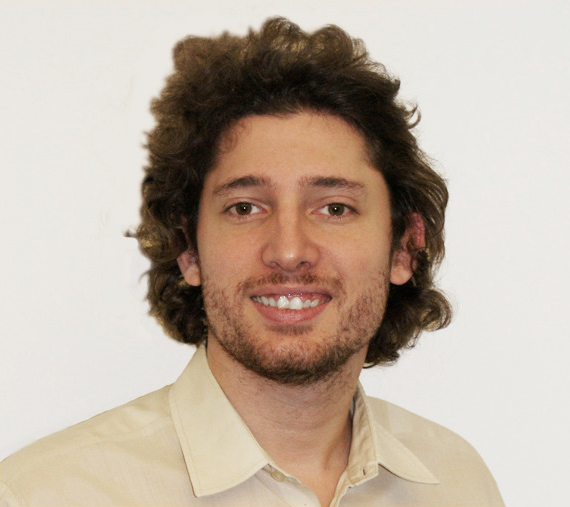
Francesco Osborne
Knowledge Media Institute (KMi), The Open University, UK
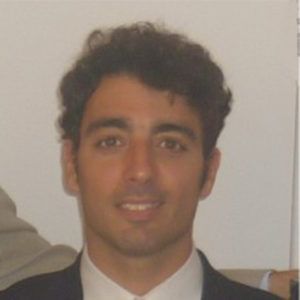
Diego Reforgiato Recupero
University of Cagliari, Cagliari, Italy

Harald Sack
FIZ Karlsruhe - Leibniz Institute for Information Infrastructure, Germany
Program Committee
- Russa Biswas, FIZ-Karlsruhe, Karlsruhe Institute of Technology, Germany.
- Danilo Dessi', FIZ-Karlsruhe, Karlsruhe Institute of Technology, Germany.
- Stefan Dietze, L3S Hannover, Germany.
- Mauro Dragoni, Fondazione Bruno Kessler, Italy.
- Genet Asefa Gesese, FIZ-Karlsruhe, Karlsruhe Institute of Technology, Germany.
- Pascal Hitzler, Wright State University, USA.
- Mayank Kejriwal, Information Science Institute, University of Southern California, USA.
- Gerard de Melo, Rutgers University, USA.
- Amedeo Napoli, LORIA, CNRS, France.
- Finn Årup Nielsen, Technical University of Denmark, Denmark.
- Achim Rettinger, AIFB-KIT, Germany.
- Petar Ristoski, IBM research, USA.
- Thiviyan Thanapalasingam, Vrije University of Amsterdam, the Netherlands.
- Veronika Thost, IBM Research, USA.
- Volker Tresp, Siemens AG, Germany.
- Lei Zhang, FIZ-Karlsruhe, Karlsruhe Institute of Technology, Germany.
